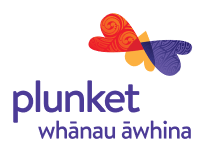Parenting Your Child From 2 to 3 Years
Parenting Your Child From 2 to 3 Years
Tamariki (children) at 2 to 3 years of age are learning about themselves and what they want and don't want. Find out more about keeping your child's teeth healthy, managing tantrums and keeping your home environment safe.
From 2 to 3 years
"Children are so curious about the world . . . of course they have so many questions. They want to touch everything and find out what it's all about. It’s wonderful to be a part of that learning experience."
In the video, we hear from Carmen, a Well Child Tamariki Ora nurse. She explains ...
"There's lots of changes in the child's teeth at the moment. It's really important that you clean them twice a day with a toothbrush and a smear of toothpaste."
"Often, temper tantrums can be an issue, so it's really important to know that this can be quite normal behaviour at this stage. Just stay positive with your child."
"Often it is someone to say, you're actually doing a really good job, that can help you."
Teeth
Your child will have most of their baby teeth by the age of 2. Healthy baby teeth usually mean healthy adult teeth too, so it's important you look after your child's first teeth.
See the KidsHealth page on caring for your child's teeth to learn more.
Nutrition
There are lots of things you can do to help your baby learn healthy eating habits right from the start.
See the KidsHealth section on healthy eating for more tips.
Fussy eating
Fussy eating is common in tamariki, and it's common for them to dislike certain foods. Tamariki will gradually eat and explore new foods as they get older. Providing healthy food and an enjoyable eating environment for your child will help them enjoy mealtimes.
See the KidsHealth page on fussy eating to learn more.
Sleep needs
Pēpi need sleep to grow and develop. Sleep needs vary and change as they grow. Knowing what to expect at each stage helps you understand your baby's sleep needs as they grow.
See the KidsHealth page on normal sleep in toddlers from 1 to 3 years.
Safe sleep
Tips when putting pēpi to sleep
- face up
- lay pēpi flat on their back
- face clear
- gentle handling of pēpi
See KidsHealth for more information about safe sleep for your baby.
Development
Tamariki are natural learners and between birth and 5 years, tamariki grow and learn at the fastest rate of their lifetime. There are many ways of learning - tamariki learn by watching, by listening and especially by doing.
See the KidsHealth section on learning and development for more information.
Safe home environment
Make sure your home environment is safe for your baby. Never leave tamariki, especially those under 5 years of age, unsupervised near water, including baths, buckets and water troughs. Keep medicine in a high place out of reach and out of sight of children.
See the KidsHealth section on injury prevention for more tips.
Managing tantrums
Tantrums are common in tamariki (children). They are a normal part of child development. Find out about what may trigger tantrums in your child and what you can do when they happen.
See the KidsHealth page on tantrums for more information.
Toilet training
Not all tamariki are the same when it comes to toilet training. You may see signs that your child is ready for toilet training from around 2 years old. Some tamariki may be ready from as early as 18 months. Learn about the signs tamariki show when they are ready for toilet training.
See the KidsHealth page on toilet training to learn more.
Smoke-free environment
Make sure your baby's environment is smoke-free. Cigarette smoke is very harmful for your baby.
If you want to give up smoking:
- call the free Quitline Me Mutu on 0800 778 778 or text 4006
- check out the website Quitline
- ask a health professional
When to see a health professional
Pēpi and young tamariki get sick often – it's a normal part of childhood. Get help quickly if your child shows any danger signs.
See KidsHealth for advice about when to seek help if your child is sick.

Call PlunketLine on 0800 933 922 for parenting advice.
This page last reviewed 01 October 2024.
Do you have any feedback for KidsHealth?
If you have any feedback about the KidsHealth website, or have a suggestion for new content, please get in touch with us.
Email us now